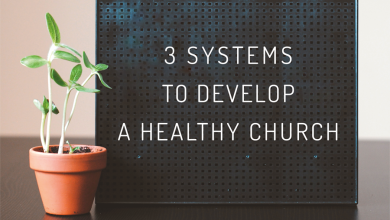Keeping Gen Z in the Church
By Ps Mavis Wong, NextGen Commission Chair for the Asia Pacific Assemblies of God Fellowship

Gen Z, the “most” generation in history. How do we keep them in the church? Ps Mavis Wong addresses the issue and strategies.
Gen Z, the world’s first digital natives, stand as the second-youngest generation positioned between Millennials and Gen Alpha. This group refers to individuals born between 1999 and 2015, those aged 9 to 25 years old in the year 2024. Gen Z is classified as the “most” generation in history – the “most” digitally savvy, educated, globally connected, ethnically diverse, disrupted, and nonconformist, rejecting traditions and labels.[1]
Addressing these trends is crucial to effectively engage and keep Gen Z growing in the church.
The Issue: The Growing Disconnect
Exposure is up, experience is down. Digital literacy is up, biblical literacy is down. Stimulation is up, critical thinking is down. Connections are up, community is down. National religious statistics underscore a significant concern, with a decline in Protestant affiliations and a rise in young people claiming no religious affiliations.[2] Addressing these trends is crucial to effectively engage and keep Gen Z growing in the church. Every individual is created for a relationship with God and community in the Church. What are the desires of this generation that must be met to draw them towards God, to love Him and love His Church?
The Strategies: M.E.E.T Gen Z to Keep Gen Z
1. Model Authentic and Safe Community (1 Thessalonians 2:8, 1 Peter 3:8)
Despite high connectivity, Gen Z often experience loneliness and long for an authentic community. Particularly during key transitions, they feel disconnected or displaced from God and community. Gen Z need both the “temple” and the “table”. The temple symbolizes the Church. The table represents the community, where conversations happen, connections are built, questions are asked, and faith is solidified around the table. The Church must model what the message of Christ can look like in a community. This process begins with a genuine desire to understand. Instead of talking at Gen Z, talk with them. This requires the Church to be intentional, authentic, empathetic, and open.
Restoring their trust requires the Church to create safe spaces for genuine conversations without the fear of shame and judgment amid cancel culture.
Gen Z value honesty and vulnerability, seeking a community that openly discusses struggles and doubts.[3] They question various matters, ranging from social injustice to God’s sovereignty. Many have left because the Church failed to address their questions or is addressing issues they are not asking about. Restoring their trust requires the Church to create safe spaces for genuine conversations without the fear of shame and judgment amid cancel culture. By giving them a seat at the table, the Church can respond honestly, fostering meaningful dialogue, and building trust. With Gen Z at the table, they can now be part of the answer to their generation’s questions and the solution to build both the temple and the table.
2. Empower, not Entertain (Ephesian 2:10, 4:11-12)
Every product, podcast, streaming platform, and social media echoes the same call to action: come and watch, read, like or buy this. The Church risks getting lost in the noise if we simply, say, “come and listen.” What sets the Church apart is that, while the world offers entertainment, the Church offers discipleship. Babysitting Gen Z nurtures babies, leading them raises leaders, and discipling them produces disciples and disciplers. Entertained Gen Z become consumers. Empowered Gen Z becomes changemakers. Gen Z are driven by causes and seek to make a positive impact in the world. If the Church fails to provide them with purpose and discipleship, they will find that in the world.
Their potential is immense and allowing them to assume key leadership positions early prevents the Church from stagnating and becoming outdated, extending its reach beyond the physical into digital spaces.
Offering Gen Z opportunities to serve, lead, and contribute to the church’s vision is crucial. Gen Z is marked by creativity, innovation, and collaboration. They fearlessly problem-solve by leveraging digital tools.[4] They possess a unique capacity for Kingdom imagination that the Church can learn from and take seriously. Their potential is immense and allowing them to assume key leadership positions early prevents the Church from stagnating and becoming outdated, extending its reach beyond the physical into digital spaces.
3. Encourage Intergenerational Interactions (Philippians 2:1-2, Psalm 78:4-7)
High levels of stress and anxiety are prevalent among Gen Z, with 44% in Singapore reporting feeling stressed or anxious most of the time. Their worries include personal finances, the well-being of friends and family, and challenges like poor work/life balance and heavy school workloads.[5] These realities reveal opportunities for mentoring. In the book, “Faith for Exiles”, the presence of older adults as mentors plays a crucial role in cultivating resilient disciples.[6]
With age-segmented and life-stage services and ministries, the Church can consider creating systems and structures allowing different age groups to connect and serve together.
With age-segmented and life-stage services and ministries, the Church can consider creating systems and structures allowing different age groups to connect and serve together. This facilitates older generations to speak truth, journey life, and do ministry with Gen Z, not just for or to them. This will eliminate the “us” and “them” mindset, building bridges not walls, fostering unity within the Church.
4. Teach Biblical Worldview (2 Timothy 3:16-17, Colossians 2:8)
Scripture engagement and biblical literacy are steadily declining among Gen Z. Many disengage during sermons and disconnect from the church due to a compartmentalized faith.[7] To bridge the widening gap between God’s Word and Gen Z’s world, the Church must teach them the Bible and encourage biblical thinking. Gen Z has been exposed to a corrupt culture from a young age – whatever informed them has formed them. Only Jesus can save, and the Church’s commitment should be to guide Gen Z to see Scripture as the plumbline for how to live, encouraging them to know, love, and walk in the truth.
The Church must equip them with the uncompromised Gospel and the knowledge and skills to engage their world to interpret culture through God’s Word.
Cultural discernment is crucial for Gen Z. They constantly face subtle deceptions and false doctrines, distorting God’s truth and promises. It is no longer sufficient to tell Gen Z what to believe in, but why and how, they can discover the truth. The Church must equip them with the uncompromised Gospel and the knowledge and skills to engage their world to interpret culture through God’s Word. Presenting a clear exposition of scripture and teaching them to live out their faith beyond church walls is essential for Gen Z to evangelize to their own generation, preventing a second-generation phenomenon.
Provide Gen Z with purpose, a community to journey life, and a mission.
The Urgency: Kingdom Expansion
Pastors and ministers, your ministry to Gen Z is making a significant impact. As the church navigates today’s challenges and opportunities, it must prioritize the spiritual growth, leadership development, and cultural engagement of Gen Z. Provide Gen Z with purpose, a community to journey life, and a mission. This way, the Church will stay true to its mandate, innovate in methods to remain vibrant and relevant, and continue preaching the message of Jesus from generation to generation.
[1] Barna Group, Gen Z: The Culture, Beliefs and Motivations Shaping the Next Generation (Ventura, CA: Barna Group, 2018).
[2] Singapore population census (2022) reports the total Christian population (including Catholics) increased from 18.8% in 2015 to 18.9% in 2020. A closer look at Protestants shows a decline from 12.1% to 11.9% in the same period. Young people (ages 15-24) with no religious affiliations grew from 21% in 2010 to 24% in 2020. The State of the Church in Singapore 2022 indicates more churches reporting an outflow of attendees (45%) than an inflow (38%).
[3] Brad Griffin, Kara Powell, and Jake Mulder, Growing Young: Six Essential Strategies to Help Young People Discover and Love Your Church, 2016, Baker Books. [4] Barna Group, Gen Z: The Culture, Beliefs and Motivations Shaping the Next Generation (Ventura, CA: Barna Group, 2018). [5] Deloitte Southeast Asia Ltd, Deloitte’s 2023 Gen Z and Millennial Survey, <https://www2.deloitte.com>. [6] David Kinnaman and Mark Matlock, Faith for Exiles: 5 Ways for a New Generation to Follow Jesus in Digital Babylon, 2019, Baker Books. [7] Sean McDowell and J.Warner Wallace, So the Next Generation Will Know: Preparing Young Christians for a Challenging World, 2019, David C. Cook.
Ps Mavis Wong is a full-time pastor in Trinity Christian Centre, who ministers to and disciples connect group leaders and members. Additionally, she serves as the NextGen Commission Chair for the Asia Pacific Assemblies of God Fellowship (APAGF) from July 2023. Since answering the full-time call in 2012, Ps Mavis carries a heart for the lost and a passion to see children, youth and young adults encounter Jesus. Her desire is for transformed lives to influence culture. She envisions for generations to rise up as leaders to serve God in the Church and beyond, stepping into their God-given destiny and thriving in God’s purposes for them.




